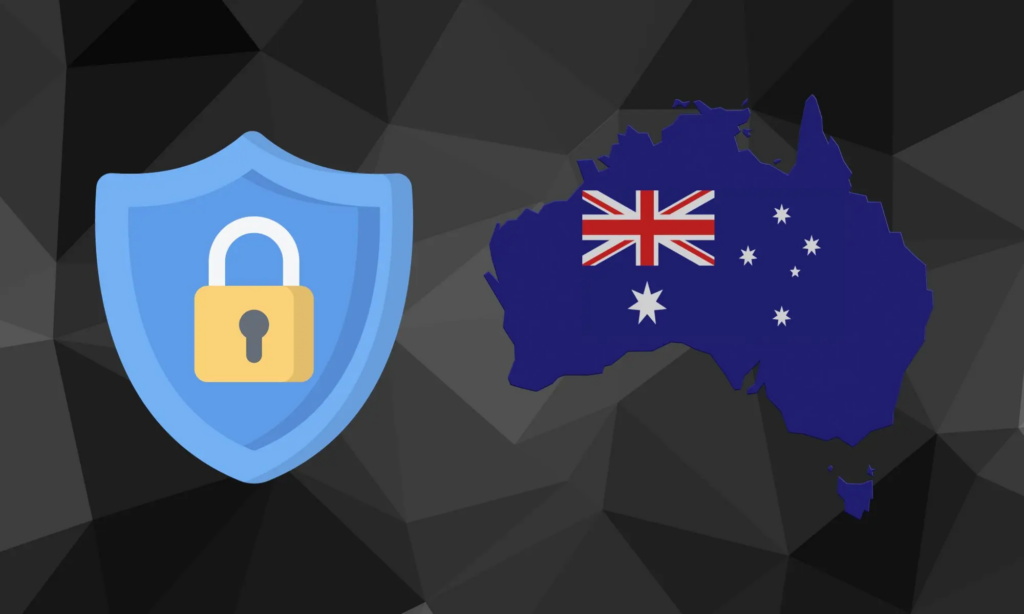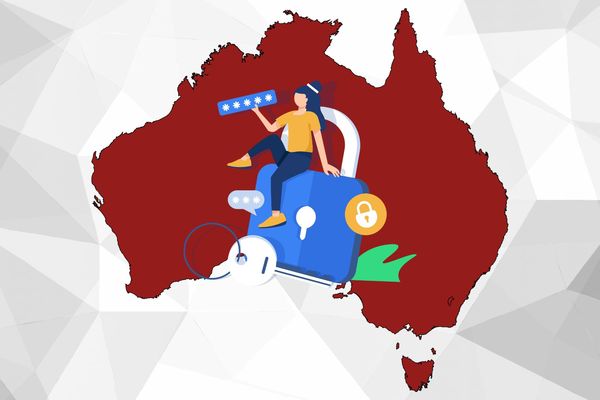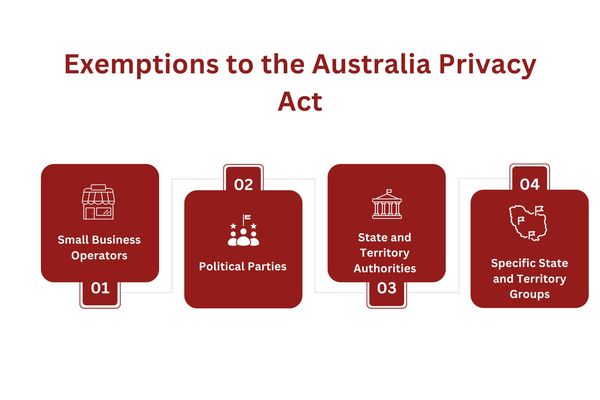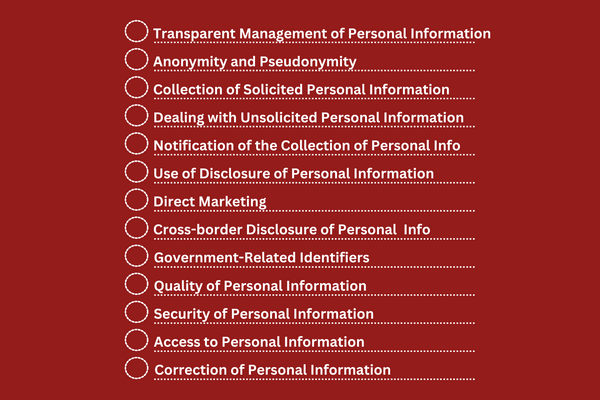
The Australia Privacy Act is a big deal for businesses. It’s a set of rules about how businesses should handle personal information.
This article will explain what the act is, why it’s important, and how it affects businesses. If you’re a business in Australia, this is something you need to know about to avoid hefty fines and a damaged reputation.
Let’s dive right in.
Key Takeaways
The Privacy Act in Australia, similar to the GDPR in Europe, is focused on protecting personal information. Any business, whether big or small, needs to follow the rules, or they might get slammed with massive fines and see their reputation take a nosedive.
There are 13 key principles for handling personal data that businesses need to pay attention to. These cover everything from gathering only necessary data to making sure the data is locked up tight. By sticking to these guidelines and ensuring proper consent mechanisms, businesses can do right by their consumers.
If the Australia Privacy Act seems confusing, getting help with compliance services can make things a lot clearer. Businesses like Captain Compliance, offering corporate compliance solutions, are here to answer questions and provide guidance.
What is the Australia Privacy Act?
What is the Australia Privacy Act.jpg

The Australia Privacy Act, much like GDPR, is a set of rules that tell businesses how to handle personal information and respect data subject rights. It’s been around since 1988, but it’s had some updates to keep up with the times.
Back in ’88, the Australian government realized peoples’ personal info needed some protection. So they decided to create the Privacy Act – some rules for businesses to follow about collecting and processing people’s details properly.
But things have changed since then. With everyone on the internet sharing stuff online these days and bigger threats being developed, there were new challenges. In 2022, the government decided the law needed a tune-up to keep up with the world.
One big change was the penalties – break the rules, and a business might have to cough up a lot more dough now. The government also gave more power to the Office of the Australian Information Commissioner (OAIC).
Even some foreign businesses have to abide by the Australia Privacy Act now now if they’ve got Australian consumers. The bottom line is that the Privacy Act is about keeping personal info safe and secure. It’s there so businesses can be trusted with their data.
Who Needs to Follow the Australia Privacy Act?
First off, if a business makes more than 3 million AUD ($2 million) a year, it must follow the Privacy Act rules. That’s a lot of money, so mostly, just the bigger businesses fit into this group.
Second, if you’re part of the Australian government, you’re included too. This means government agencies really need to be extra careful with the info they get.
Health is a big deal here as well. So if a business provides health services or keeps people’s health data, they also must stick to the Privacy Act even if they don’t make that 3 million AUD.
Lastly, some businesses might not fit into these groups but still choose to follow the Privacy Act anyway. It’s like volunteering to do the right thing.
Exemptions to the Australia Privacy Act
Exemptions to the Australia Privacy Act.jpg

Not everyone has to follow the Privacy Act. Some organizations are off the hook. Here’s who doesn’t need to worry about the Australia Privacy Act:
Small business operators: Generally speaking, smaller businesses with under 3 million AUD in revenue do not need to worry. But, if they provide health services or have health details, they’re back in.
Political parties that are registered: They have their own set of rules.
State and territory authorities: They’re governed by different laws.
Some specific state and territory instrumentalities listed in the Act.
Data Covered Protected Under the Australia Privacy Act
When we talk about the Australia Privacy Act, we’re really talking about the safety of personal information. But what does “personal information” mean?
Personal information is anything that identifies someone – it can include their name or where they live. For businesses, it’s super important to know what’s considered personal info. Like if you have a consumer’s email that’s personal and their birthday? Also personal.
Even little things like their job title or where they work can be personal if you can connect it back to them.
Now, the Privacy Act has some clear rules here. If you’re a business, you can only get people’s personal data if you really need it. And once you have it, you must keep it safe – make sure it’s correct, up-to-date, all that. You also don’t want it to get lost or stolen.
But it isn’t just about data safety. People got rights, too. They can ask to see what data you’ve collected about them. And if something’s wrong, they can ask to get it fixed. Plus, if they don’t want a business to have their details anymore, they can ask to delete that stuff.
13 Australian Privacy Principles
13 Australian Privacy Principles.png

The Australia Privacy Act has 13 key rules, known as the Australian Privacy Principles (APPs). These rules guide businesses on how to handle personal information the right way. Each principle focuses on a different part of data protection. Let’s dive into what each one mean:
APP 1: Open and Transparent Management of Personal Information
This rule is all about being clear. Businesses need to tell people how they handle their personal information. It’s about being open and honest.
APP 2: Anonymity and Pseudonymity
People have the right to stay anonymous. If they don’t want to share their real name, they don’t have to. Businesses must respect that.
APP 3: Collection of Solicited Personal Information
Businesses can only collect personal information if they really need it. And they must do it in a fair way.
APP 4: Dealing with Unsolicited Personal Information
Sometimes, businesses get personal information without asking for it. This rule tells businesses to destroy or de-identify such information unless necessary for legitimate purposes.
APP 5: Notification of the Collection of Personal Information
When businesses collect personal information, they need to tell people. They must explain why they’re collecting it and how they’ll use it.
APP 6: Use of Disclosure of Personal Information
This rule is about using personal information the right way. Businesses can’t just use it however they want. They need a good reason.
APP 7: Direct Marketing
People don’t always like getting ads. This principle states that organizations can’t use or disclose personal information for direct marketing unless it has been consented, the person can easily opt out, and the person can reasonably expect to use their information
APP 8: Cross-border Disclosure of Personal Information
If businesses send personal information overseas, they need to make sure it’s safe. This principle requires that the organization maintain similar privacy standards or obtain the individual’s consent.
APP 9: Adoption, Use, or Disclosure of Government-Related Identifiers
Businesses can’t just use government IDs like they’re their own. This rule sets the boundaries.
APP 10: Quality of Personal Information
Information needs to be right. Businesses must make sure the personal information they have is accurate and up-to-date.
APP 11: Security of Personal Information
Keeping personal information safe is a big deal. This rule tells businesses how to protect it from harm. This includes proper access controls and more.
APP 12: Access to Personal Information
People have the right to see their personal information. This rule guides businesses on how to show it to them.
APP 13: Correction of Personal Information
If something’s wrong with the personal information, it needs to be fixed. This rule tells businesses how to make corrections.
Checklist for Businesses to Comply with the Australia Privacy Act
For businesses operating in Australia, understanding and complying with the Privacy Act is not just a legal necessity but a testament to their commitment to their consumers.
This act ensures the protection of personal information, fostering trust between businesses and consumers. Here’s a detailed checklist to guide businesses in aligning with the Australia Privacy Act’s requirements.
Collect Only Necessary Data
When a business gathers data from consumers, they have to be careful only to get stuff that’s truly needed. Sure, it’s tempting to grab everything possible, but that can backfire in a major way.
See, if you take more than required and then have some kind of data leak, it looks really bad. People get upset when businesses have too much of their personal details. So, keeping it limited to what’s strictly needed is smart.
Only gather what’s truly essential for your services and products specifically, and otherwise, you risk violating your consumers if problems happen. It’s smart to check in on what is being collected every so often, too.
Sticking to the necessary keeps consumers happier and reduces headaches if security issues pop up. There’s no need for extra risks, so keep data collection limited.
Create a Privacy Policy
Privacy policies are like a contract between businesses and people using their services. They must say how peoples’ personal data is used, kept, and protected. That way, people know what’s up. Businesses should check their privacy policies regularly.
As they change how they do business or use new tech, how they handle data might change, too. Keeping the policy updated means consumers always know what’s going on with their data, and making it easy to find is big, too.
Safeguard Data Transfers
Moving data around, particularly to other countries, can be a risky business. Businesses need to make sure whoever they give people’s data to, especially if it’s a third party overseas, follows rules just as strict as Australia’s Privacy Act.
Checking up on these data handlers every so often helps spot any holes in how they protect data so personal details stay secure from start to finish. Encrypting transfers and using tight protocols helps security when transferring data, too, so it doesn’t leak or get mishandled.
Upgrade Security Standards (APP 11)
The digital world keeps changing, so security dangers do too. Businesses need to keep updating their security to stay ahead of problems. This means encryption, access controls, and destroying personal information that’s no longer needed.
Getting all the employees up to speed with compliance training is also key.
When everyone gets how big data security is and what to do, it really cuts down on risks from the inside. Doing regular checkups on security helps find holes to fix before they turn into big deals down the road.
Be Prepared for Data Breaches
Dealing with data breaches is a huge issue these days. Businesses must be ready for when their data gets hacked or stolen.
Having a plan for what to do if there’s a breach is just as important as trying to prevent it in the first place, and if the business knows sensitive data was taken or could hurt people, they must have a data breach notification plan.
Plus, being upfront about a breach can help keep people’s trust. After everything calms down, businesses should look back at what went wrong so they can update their security and stop it from happening again.
It’s all about being prepared, having a response ready, and learning from mistakes. Consumers will understand data hacks happen sometimes, so long as the business makes things right.
Partner with Captain Compliance
Partnering with outsourced compliance superheroes like Captain Compliance gives businesses some extra confidence that they’re doing things by the book. With new rules popping up all the time, it can be hard to keep up.
But our team of superheroes stays on top of everything so businesses don’t have to, and chatting with them every so often helps make sure businesses are following the latest and greatest data protection rules.
And it’s not just about ticking boxes – we can also help businesses up with training materials and resources to get the whole team up to speed on how to properly protect data. That way, the whole business makes it a priority, not just the legal team.
Penalties for Non-Compliance with the Australia Privacy Act
The Australia Privacy Act is a super important legislation that protects people’s personal information. For any business operating in Australia, following this act isn’t just a legal thing they have to do, but it also shows consumers that the business cares about keeping their data safe.
But if businesses don’t follow the rules, there are big consequences. The Office of the Australian Information Commissioner (OAIC) is the main group enforcing the Privacy Act. Over time, the OAIC has gotten more power to make sure businesses are playing by the rules.
One of the biggest penalties for not complying is getting fined big money, and businesses can be hit with fines of up to 50 million AUD ($30 million), which is crazy.
For really severe cases, the fine can be based on 30% of the business’s total annual revenue or even three times the money it made by misusing people’s information.
But it’s not just about money. If a business doesn’t follow the Privacy Act, its reputation can be ruined for a long time. Nowadays, consumers care a lot about their data privacy.
So, if there’s a breach or misuse of data, consumers will lose trust in the business, which can totally damage the brand. The OAIC can also issue public announcements about the business not complying, which makes the reputation damage even worse.
Closing
The Australia Privacy Act seems super confusing at first. There’s a lot of rules you must remember. But really, it’s really just about keeping people’s personal info safe. And for businesses, it’s showing you care and doing the right thing.
Now, you might be thinking, cool, but what should I actually do now? That’s where Captain Compliance swoops in, and we’re total pros when it comes to the Privacy Act. We can walk you through it, answer any questions you have, and make sure your business is on track.
We like to keep things simple and straightforward so you can focus on your business, not compliance. Ready to take the next step? Get in touch with us. We’re here to help.
FAQs
What’s the main goal of the Australia Privacy Act?
The Australia Privacy Act is all about keeping people’s personal info safe. It sets rules for businesses on how to collect, use, and protect this data. It’s there to make sure businesses treat people’s details with respect and care.
Want to know more about the Act’s details? Captain Compliance is here to help!
Who should really worry about the Australian Privacy Act?
Mainly businesses that make over 3 million AUD a year, government agencies, and those dealing with health data. But even some smaller businesses choose to follow it because it’s the right thing to do.
Are you running a business and unsure if the Act applies to you? Check out our education!
How does the Act protect people’s rights?
People can ask to see the personal info that businesses have. If something’s not right, they can get it fixed. And if they don’t want a business to have their details anymore, they can ask for it to be deleted.
Do questions about personal rights under the Act? Reach out to Captain Compliance for clarity!
How does the Australian Privacy Act compare to other countries’ data protection laws?
Every country has its own way of handling data protection. For instance, the U.S. states have their own standards and rules. While there are similarities, each law has unique aspects tailored to its region’s needs.